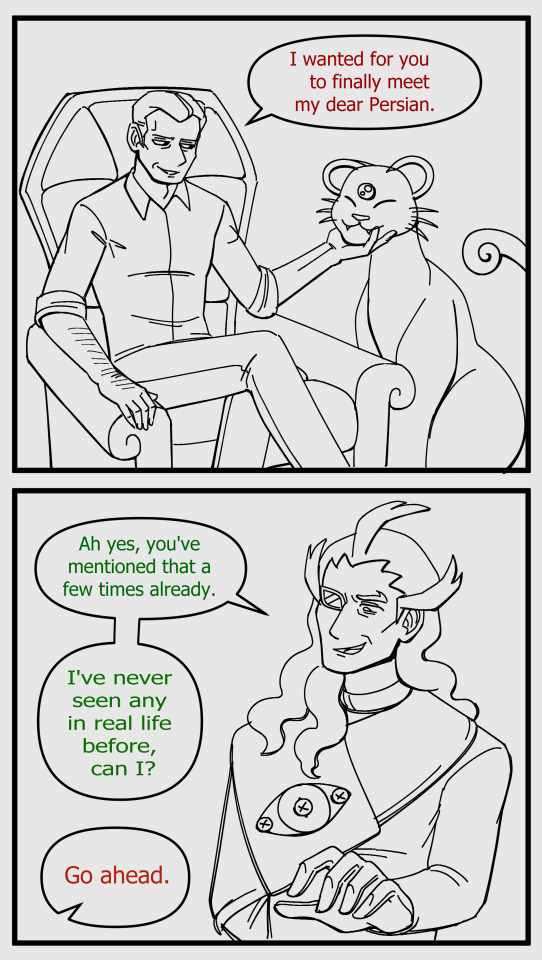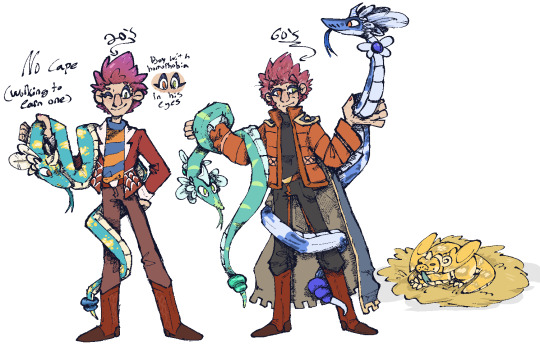#Persians States
Explore tagged Tumblr posts
Text
everyone who's a late roman republic or french revolution head needs to also hop on the late medieval early modern central and south asian train 😓😓im so alone (on tumblr that is)
#roman republic#late roman republic#frevblr#frev#french revolution#sorry for pranking you guys in the tags ❤️#we have gay persianate textile arts.. ooh ahh...#mughal empire#maratha confederacy#nayaka states#central asian history#south asian history#medieval persia#islamic history#persian miniature painting#indian miniature painting#history#some of you guys would love gayvestigating mughal politicians#go yaoify banarsidas NOW!
21 notes
·
View notes
Text

Cyclamen coum / Eastern Cyclamen at the JC Raulston Arboretum at North Carolina State University in Raleigh, NC
#Cyclamen coum#Cyclamen#Primulaceae#Eastern Cyclamen#Sowbread#Persian violet#Plants#Flowers#Foliage#Nature photography#Photography#photographers on tumblr#Jc raulston arboretum#north carolina state university#Ncsu#nc state#Raleigh#Raleigh NC#north carolina#🌺🌻
10 notes
·
View notes
Text







rukhsana ‘rebecca’ ghafa & karim ‘rook’ ghafa.
#lmao sorry for the multiple posts im just clearing out my drafts why do i have SOOO many???#been thinking of the ghafa family lately ….. :(#also my hc is that rook helped her get back to her persian routes#cause rebecca moved to the states when she was young and really tried to assimilate herself into the culture#including going by rebecca instead of rukhsana :(#ugh im obsessed with them#twc#the wayhaven chronicles#twc rebecca#oc: nasarin ghafa#oc: nazanin ghafa
35 notes
·
View notes
Text

A dish with the image of Shapur II hunting lions. Iran. Sassanid. 310-320s CE.
The State Hermitage Museum, St. Petersburg.
#state hermitage museum#Iran#iranian art#sassanid#Persia#persian#persian history#ancient history#art#culture#iranian history#history
14 notes
·
View notes
Note
Do you think Persian is a Ghetsis hater? I feel like Ghetsis despises pokemon but has to play nice with Persian around Giovanni
Absolutely. I think most pokemon dislike Ghetsis on intuition alone because his vibes are atrocious lmao so it absolutely applies to Persian too. Also it's hilarious. Me, my husband and his huge ass cat that hates me kinda situation.
Also I don't really think he has to play nice that much. Yeah, there are some obvious rules like Giovanni would probably kill him if he ever laid a hand on Persian for example. But if it bites him and he insults it in return? Thats fair, that's how Ghetsis is, plus he finds it hilarious for him to be riled up so easily by his kitty lmao.
I guess it's a bit of a pet and the owner liking similar things (annoying Ghetsis).
Anyways sorry for taking forever to answer. In return have a comic of Ghetsis not passing the vibe check when he and Persian met for the first time.


#ask#terribledadshipping#ghetsis#giovanni#persian#first time drawing the kitty#mid effort shitpost#Giovanni can't leave them alone in a room together Ghetsis would leave in even worse state#had fun designing Ghetsis' casual outfit#he's a turtleneck enjoyer. to me#honestly it's probably not the first time Persian hated someone that Giovanni is dating lmao
45 notes
·
View notes
Text

27 notes
·
View notes
Text

😂😂😂 cleaning house indeed !
The Persian jewess 🩵
4 notes
·
View notes
Text
Alina Lipchuk and Aleksey Kazantsev

Alina Lipchuk Алина Липчук and Aleksey Kazantsev Алексей Казанцев , “Persian Dance”, “Nutcracker Щелкунчик”, libretto by Marius Petipa adapted by Andrey Petrov Андрей Петров based on the fairy tale “The Nutcracker and the Mouse King” (1816) by Ernst Hoffmann, choreo and direction by Andrey Petrov Андрей Петров, music by Pyotr Tchaikovsky Пётр Чайковский, scene design by Anatoly Nezhny Анатолий Нежный, costume design by Olga Polyanskaya Ольга Полянская, Kremlin Ballet Кремлевский балет, Great Hall of the State Kremlin Palace Большой зал Государственного Кремлёвского Дворца, Moscow, Russia.
Note I: Some links leading to the english version of the Kremlin Ballet website do not work or have incomplete info. For this reason, they are published in their russian version. You always have the option to translate the page using the right button on your mouse.
Note II: Original quality of photographs might be affected by compression algorithm of the website where they are hosted.
Source and more info at: Alina Lipchuk on Instagram
#Aleksey Kazantsev Алексей Казанцев#Alina Lipchuk Алина Липчук#Anatoly Nezhny Анатолий Нежный#Andrey Petrov Андрей Петров#Щелкунчиk#Ernst Hoffmann#Great Hall of the State Kremlin Palace Большой зал Государственного Кремлёвского Дворца#Kremlin Ballet Кремлевский бал��т#Marius Petipa#Nutcracker#Olga Polyanskaya Ольга Полянская#Persian Dance#Pyotr Tchaikovsky Пётр Чайковский#Russian Ballet#The Nutcracker and the Mouse King#Dans#Danse#Dance#Danza#Dancer#Dansen#Balet#Ballet#Балет#Ballett#Balletto#Balerino#Balerina#Ballerina#Ballerino
2 notes
·
View notes
Text


Teenage dirtbag || OLD MAN YURI!!!
#art#pokemon#champion lance#elite four lance#dragonair#team rocket giovanni#persian#weedle#weedle did NOT pass away between the images shes just old and retired#halfway through makin this i forgot why i stated it but ah well#for clarity gios ages should be equal minutes one year to lance#ran outta time to give him notes
70 notes
·
View notes
Text
As soon as the Shah returned to Iran after the successful U.S.-backed coup, he summoned Amb. Loy Henderson, who was in on the plot, for a secret rendezvous at the palace. Henderson’s cabled report is the only known record of this historic conversation…
The Mossadegh Project
• U.S. State Department Documents on Iran | 1951-1980
#iran#iranian#tehran#mossadegh#shah of iran#loy henderson#state department#cold war#communism#1953 coup#CIA#foreign policy#us foreign policy#imperialism#persian#middle east#1950's#history#diplomacy#foreign affairs#foreign relations#monarchy
2 notes
·
View notes
Text

Marines with Bravo Company, 1st Battalion, 3rd Marine Regiment, Operation Desert Storm, 1991
#operation desert storm#persian gulf war#war#1990s#us marines#marine corps#americana#america#usa#united states of america#united states#american#us history#american history
0 notes
Text
youtube
"'Misirlou' (Greek: Μισιρλού < Turkish: Mısırlı 'Egyptian' < Arabic: مصر Miṣr 'Egypt'[1]) is a folk song[2] from the Eastern Mediterranean region. The song's original author is unknown, but Arabic, Greek, and Jewish musicians were playing it by the 1920s. The earliest known recording of the song is a 1927 Greek rebetiko/tsifteteli composition. There are also Arabic belly dancing, Albanian, Armenian, Serbian, Persian, Indian and Turkish versions of the song. This song was popular from the 1920s onwards in the Arab American, Armenian American and Greek American communities who settled in the United States." —Orginal Wikipedia Article https://en.wikipedia.org/wiki/Misirlou
#but Arabic#Indian and Turkish versions of the song. This song was popular from the 1920s onwards in the Arab American#Armenian American and Greek American communities who settled in the United States.#Μισιρλού#Arabic#Greek#and Jewish musicians were playing it by the 1920s. The earliest known recording of the song is a 1927 Greek rebetiko/tsifteteli composition#Albanian#Armenian#Serbian#Persian#Indian#Armenian American Greek American communities who settled in the United States.#Mısırlı#مصر#Youtube
1 note
·
View note
Note
Hi Bitches! I have a fun food story I think you'll like.
So I recently discovered there's a produce rescue in my state that purchases unsold wholesale produce at the border to prevent it from being tossed in the landfill. They then sell it off at hella cheap prices. You don't get to pick what's in your box, but, uh. It's 70 pounds of produce for $15, you get what you get and if you're like me you will figure out what to do with it rather than let it go to waste.
Anyway, my last box included an absolutely insane number of Persian cucumbers. So I decided I'd try something I've wanted to try for years, because if I wrecked one or two in the process it wasn't as big a disaster as if I'd tried it with expensive store bought ones, and...


I can make my own glatt kosher dill pickles now, and holy crap, Vlasic can eat its heart out. Mine are crunchier, more flavorful, better-cut and kept perfectly good food from being thrown away, doing them with my produce box meant they were about 1/8 the price, and also pickling is very easy but people think you're amazing and fancy if you pickle your own stuff.
Also if anyone is in Arizona and wants in on this action, it's called Borderlands P.O.W.W.O.W. (Produce On Wheels WithOut Waste) and you can find them here. Here's what my last box looked like:




I should note that's what's left after I split the box half and half with a friend.
HOLY MOTHERFUCKING SHITBALLS THIS IS AMAZING!!! Thank you so much for sharing this extremely frugal win AND telling the rest of us how to get in on it. With grocery prices the way they are, this is sure to keep a lot of people from going hungry or missing out on necessary nutrition. I encourage everyone outside of Arizona to look for similar programs in your state! (Though I suspect it's mostly only applicable to border states.)
Also, drop that super crunchy pickle recipe, baby.
Here's more advice:
How to Shop for Groceries like a Boss
You Should Learn To Cook. Here's Why.
Did we just help you out? Say thanks by joining our Patreon!
3K notes
·
View notes
Text
my writing style is such that on my history test that i got a 100 on i have red pen connecting two seemingly contradicting points with a question mark because he didnt read the entire sentence before starting to mark it up, and the conclusion of the sentence cleared the contradiction. it was an admittedly confusing sentence and i did know that while i was writing it. i blame the jesuits
#at the battle of thermopylae the outnumbered spartans were able to hold long enough that comma though they were eventually defeated comma#reinforcements from other greek city states were able to arive and push back the persians#like yes thats a complex sentence but also im in college lol
1 note
·
View note
Text

41 notes
·
View notes
Text


@jonmartinweek day 6 - eldritch powers | caretaking day 7 - ten years later | martin's poetry
10 years later - after surviving an apocalypse and what could be considered death, healing as an act of rebirth - martin still pulls the bullshit "lonely hands" move 😶🌫️
[Start ID: Two drawings of Jon and Martin from The Magnus Archives in blue hues. Jon is a average sized Persian man with curly hair tied back into a messy bun and multiple scars. He has a thick mustache and lighter beard, with streaks of grey in his facial hair and eyebrows, and wears rectangular glasses and a large sweater. Martin is a fat mixed Polish/Korean man with shaggy hair pulled back into a headband, several beauty marks on his skin, and a patchy mustache (beard not visible). There are streaks of gray in his eyebrows. He wears browline glasses and a simple t-shirt. Both Jon and Martin have matching bands on their left ring fingers. 1st image: Jon stands at a counter watching a mug of tea, an arrow points stating "waiting for tea to steep". Steam from the mug flows to the side and Jon wonders, "Did I leave a window open?" as the temperature presumably drops. In the steam cloud, Martin appears behind Jon in a fog-like state, reaching a vaguely shaped hand out. 2nd image: Martin grabs Jon (punctuated by GRAB with a heart), shoving one hand into his sweater collar and the other underneath his sweater. He smirks, singing, "Cold hands!". Streaks of fog trail behind him. Jon shouts at the sudden cold, "M-MARTIN!! You're freezing!", and shivers all over, one hand gripping Martin's arm and the other flailing beside him. Hair can be seen where his stomach and upper chest is exposed. End ID.]
#they can use their eldritch powers for silly....as a treat#the magnus archives#tma#jonmartin#jmart#teaholding#jonathan sims#martin blackwood#jonmartinweek2024#order up! art tag
3K notes
·
View notes